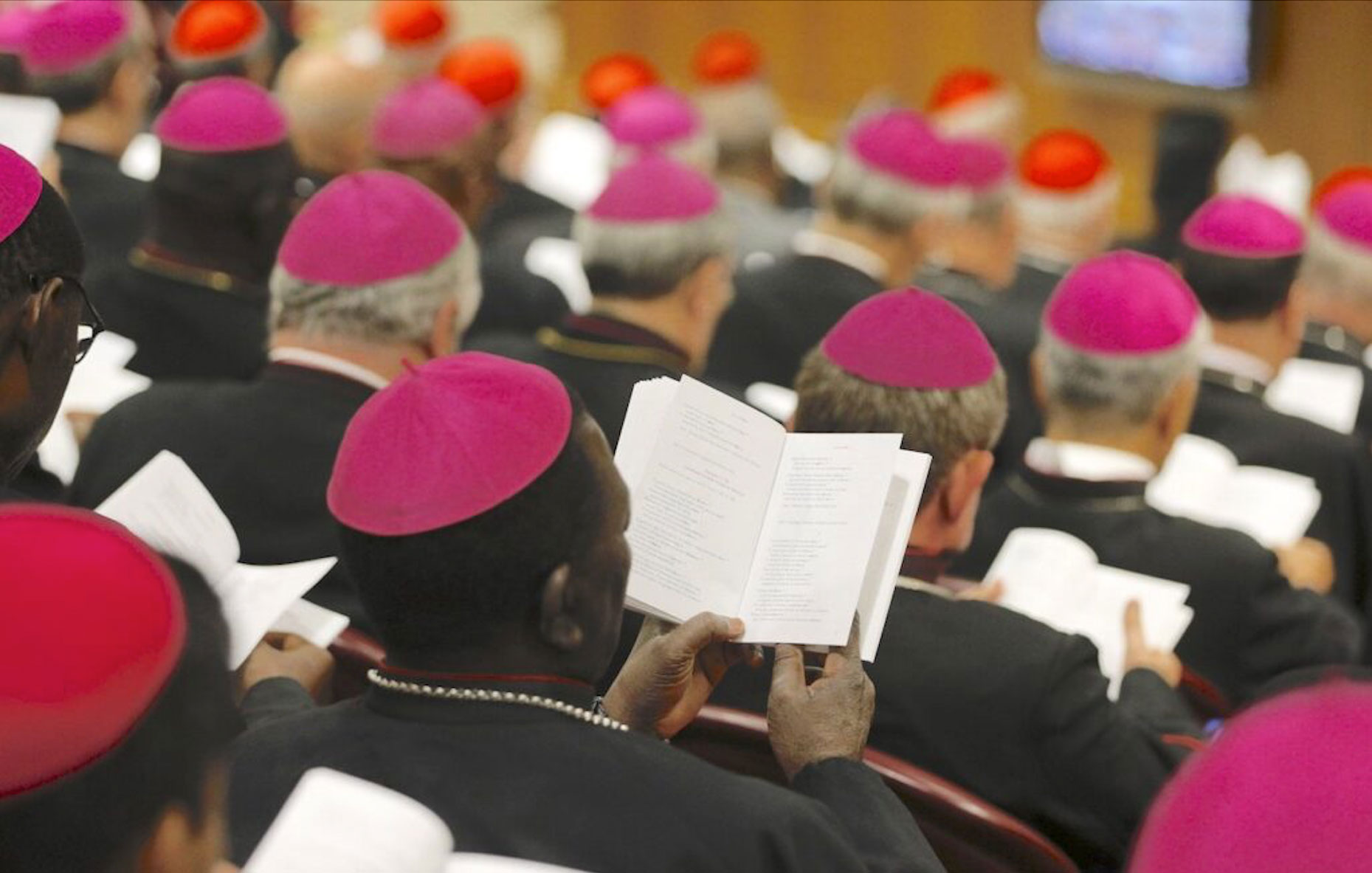By Dr. Michel Therrien
I have to be honest, there are too many times when the Church’s PR efforts need some genuine improvement. While this latest synodal process has been going on for some time, I encounter a lot of Catholics who just don’t understand what this is all about. What is a Synod on Synodality? What’s the synodal way?
It’s helpful to note that the bishops routinely meet together to discuss critical issues facing the Church. We call these gatherings a “synod”, from the Greek syn hodos, which means “journeying together” or “together along the way.” The purpose of a synod is for the bishops (and select lay people) to gather in prayer and discern how best to address whatever topic happens to be the focus of the gathering. It’s usually a two-year process that ends with the publication of a document called an apostolic exhortation, which communicates the conclusions of the gathering and provides the People of God with pastoral directives to be implemented at the local level. In recent decades, topics have included marriage and family, the Word of God, the priesthood, the New Evangelization, the Eucharist, and more recently, young people in the life of the Church. At times, only the bishops of a given region, like Africa, the Amazon, or Oceana, gather to discuss issues unique to that region.
The topic of this current synod is the nature and process of the synodal process itself. While this might seem strange and navel gazing, Pope Francis wants to focus on how the bishops gather to listen to the Holy Spirit, assess the needs and challenges of the world today, and discern God’s will for the pastoral mission of the Church. Quite simply, he feels the Church has to get better at listening to God and responding faithfully to His will for us to go out to the lost and forsaken–to be a more welcoming Church. The topic itself is quite consistent with his goal of reforming the governing bodies (the Curia) of the Church and how they function.
The reasons this topic is relevant are numerous, but let me focus on one. Synods tend to focus on the need to clarify points of teaching or particular functions of the Church within the context of the Church’s pastoral life. However, given the current state of Christianity today, Pope Francis has invited the bishops to discern together the health and authenticity of the Church’s presence and witness in the world, more generally. Consistent with his pastoral vision in his first apostolic exhortation,The Joy of the Gospel, he has invited the Church, worldwide, to discern how the Spirit is calling us to reach those whose lives are not touched by the love of God–those at the margins, as he would say.
Some Catholics have either feared or lauded what they believe is an agenda to change the Church’s teaching on gay marriage and the reception of the Eucharist by individuals in invalid marriages. In reality, this synod is not so much about those doctrinal issues but a much broader pastoral question. While the Church’s moral teaching is clear on these and other matters, as Pope Francis has himself stated on numerous occasions, what is not so clear is how best to provide pastoral care for individuals who feel estranged and alienated from God and the Church due to the complexity and messiness of their lives, especially within the setting of our modern and secular culture. Let us not forget that broken lives are enveloped in a lot of shame and self-loathing. And besides this, the sexual abuse scandals have created a credibility problem for many people, especially those struggling with sexual sin.
Pope Francis has been challenging the Church to open up pathways of God’s love and mercy to those who most need it. The assumption behind this pastoral challenge is that Jesus didn’t expect people to get the mess of their lives in order prior to having a relationship with him. Rather, it is by being in relationship with Jesus that we find the courage and confidence to address the dysfunction and woundedness of our lives. The right order of things here is essential to the mission of salvation. The Gospel accounts of St. Matthew the tax collector’s calling, the woman caught in adultery and the woman at the well all exemplify how Jesus first calls people into relationship with him and then extends to them the grace of healing and conversion.
The problem in the Church today is that access to Jesus seems barred by the way in which pastoral life is exercised in the Church. Honestly, it’s more a cultural than a doctrinal clarity issue for the Church.While nobody wants the Church to stand in the way of Jesus’ intention, our pastoral ethos can, at times, undermine the Church’s mission to bring the saving grace of Jesus to others. Whether it’s because of an officious spirit of paperwork and due process, a functional negativity of Catholics Mass goers, a moralistic attitude of judgmentalism or an excessive accommodation to the increasingly “woke” world, the typical parish may not necessarily be a place of encounter with Jesus except for the already initiated and active members.
While it might be hard to imagine that our parishes might be intimidating or unwelcoming places for those on the fringes of our communities, Pope Francis clearly thinks so and has called the bishops together to discern how the Church might better listen to God in response to the pastoral needs of real people.
In my nearly 30 years of ministry in the Church, I believe we have a lot to learn from the Holy Spirit, in this present moment, about how best to be that field hospital about which Pope Francis has so often spoken. The integration of fidelity to truth with the mercy of God is a delicate and artful balance. We need to discern better the intersection of inclusivity and moral woundedness. The purpose of a ‘Synod on Synodality,’ therefore, is to renew and transform the way the Church gathers to listen, discern, and respond individually and collectively to the will of God in our times.
If you care to learn more about what I have to say on the difficulty of pastoral discernment, here is a detailed analysis of the pastoral challenge of engaging people struggling with sexual identity or irregular unions: At the Intersection of Culpability and Inclusivity – Where Peter Is


